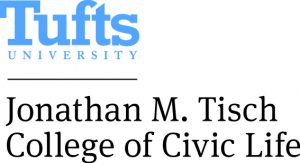Overview
Research finds that people are more likely to cooperate effectively if the group employs certain norms or rules. An important source of these rules is the list of Design Principles for managing commons that has been developed by Elinor Ostrom and her colleagues.
Concepts
- Asset-Based Community DevelopmentAlthough civic actors should think critically and address problems, it is also valuable to be able to identify and appreciate the existing assets of any community, no matter how disadvantaged. Lesson 8 of Longo 2023 entitled “Asset-Based Community Development,” helps to develop skills for focusing on assets in communities.
- Public WorkHarry Boyte defines public work as “self-organized efforts by a mix of people who solve common problems and create things, material or symbolic, of lasting civic value” (Boyte 2011). Public Work disputes the standard definition of “civic engagement” as activities that people undertake voluntarily without being paid, such as voting, protest, or discussing issues. That … Continue reading
- Elinor OstromElinor Ostrom (1933-2012) was a political scientist at Indiana University and a leader of the intellectual movement informally known as the Bloomington School. She won the Nobel Prize in Economics in 2009 and was a MacArthur “genius” Fellow and president of the American Political Science Association. She directly influenced the development of Civic Studies. Contents … Continue reading
- Design principles for commonsElinor Ostrom and colleagues have found that communities are more likely to succeed at producing and protecting common pool resources if they employ the principles listed below (as phrased in Levine 2022, drawing on E. Ostrom 1990 and E. Ostrom 2010, 653) For the underlying theory, see this video lecture by Peter Levine on Ostrom’s … Continue reading
- The Institutional Analysis and Design (IAD) FrameworkContents Concept As stated on the Ostrom Workshop website: The Institutional Analysis and Development (IAD) framework was designed by Ostrom and her colleagues from the Ostrom Workshop in 2005 to facilitate analysis of institution processes through which individual and collective choices occur. The IAD framework includes analyzing actors, norms, institutional settings, incentive structures, rules, and … Continue reading
- Design principles for commonsElinor Ostrom and colleagues have found that communities are more likely to succeed at producing and protecting common pool resources if they employ the principles listed below (as phrased in Levine 2022, drawing on E. Ostrom 1990 and E. Ostrom 2010, 653) For the underlying theory, see this video lecture by Peter Levine on Ostrom’s … Continue reading
- Social capital“Capital” always means something of value that produces a “flow” of goods for the one(s) who own it. For instance, a factory is physical capital. It can produce manufactured products if it is supplied with trained people (human capital) and raw materials. Social capital is unique in that it is not owned by an individual … Continue reading

